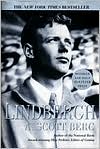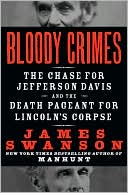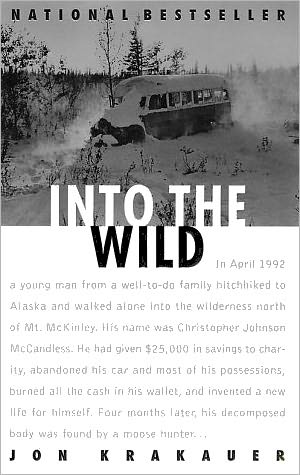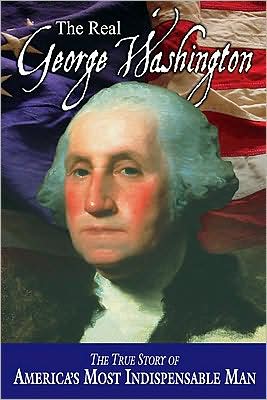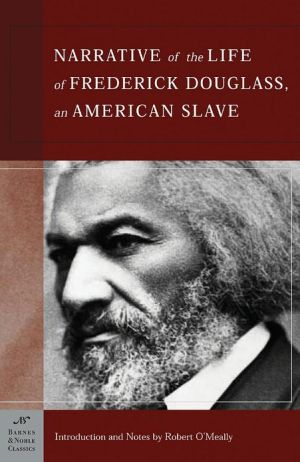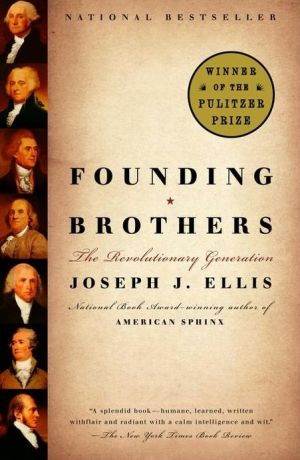Lindbergh
Few American icons provoke more enduring fascination than Charles Lindbergh—renowned for his one-man transatlantic flight in 1927, remembered for the sorrow surrounding the kidnapping and death of his firstborn son in 1932, and reviled by many for his opposition to America's entry into World War II. Lindbergh's is "a dramatic and disturbing American story," says the Los Angeles Times Book Review, and this biography—the first to be written with unrestricted access to the Lindbergh archives and...
Search in google:
Charles A. Lindbergh is at once one of the century's best-known and most misunderstood figures. In his fascinating new biography, Lindbergh, betselling author and National Book Award winner A. Scott Berg lifts the veil of myth and mystery that has surrounded the aviator since his moment of triumph on May 21, 1927, when he landed in Paris, the first person to cross the Atlantic alone in an airplane. Berg is the first author to be given unrestricted access to the massive Lindbergh archives -- more than 2,000 boxes of personal papers, including reams of unpublished letters and diaries -- and to be allowed to freely interview Lindbergh's friends, colleagues, and family members, including his children and widow. It's an insightful look at a remarkable life. Business Week - Anthony Bianco . . .Berg for the most part makes artful use of his treasure-trove [of archives]....But the reader would have been better served [with] more trenchant analysis of his often compounding subject.
Karma\ "...living in dreams of yesterday, we find ourselves still dreaming of impossible future conquests..."\ -C.A.L.\ For more than a day the world held its breath...and then the small plane was sighted over Ireland.\ Twenty-seven hours after he had left Roosevelt Field in New York—alone, in the Spirit of St. Louis—word quickly spread from continent to continent that Charles A. Lindbergh had survived the most perilous leg of his journey—the fifteen-hour crossing of the Atlantic. He had to endure but a few more hours before reaching his destination, Paris. Anxiety yielded to anticipation.\ The American Ambassador to France, Myron T. Herrick, went to St. Cloud after lunch that Saturday to watch the Franco-American team-tennis matches. When he took his seat in the front row, five thousand fans cheered. During the course of the afternoon, people in the stands heard newsboys shouting the headlines of their éditions spéciales, announcing Lindbergh's expected arrival that night. In the middle of the match, Herrick received a telegram—confirmation that Lindbergh had passed over Valencia in Ireland. All eyes were on the Ambassador as he hastily left courtside, convincing most of the spectators that their prayers were being answered. Before the match had ended, the stands began to empty.\ Herrick rushed back to his residence in Paris, ate a quick dinner at 6:30, then left for the airfield at Le Bourget, to the northeast of the city. "It was a good thing we did not delay another quarter of an hour," Herrick recalled, "for crowds were already collecting along the road and in a short time passage was almost impossible."\ The boulevards were jammed with cars ten abreast. Passengers poked their heads through the sliding roof panels of the Parisian taxis, greeting each other in jubilation. "Everyone had acquired a bottle of something and, inasmuch as the traffic moved very slowly," one reveler recalled of that night in 1927, "bottles were passed from cab to cab celebrating the earthshaking achievement." A mile from the airfield, the flow of traffic came to a standstill.\ Once the radio announced that Lindbergh had flown over southern England, mobs formed in the heart of Paris. Thirty thousand people flocked toward the Place de l'Opéra, where illuminated advertising signs flashed news bulletins. Over the next few hours, the crowds spilled into the Boulevard Poissonière—until it became unpassable—where they expected to find the most reliable accounts of Lindbergh's progress posted in front of the Paris Matin offices. "Not since the armistice of 1918," observed one reporter, "has Paris witnessed a downright demonstration of popular enthusiasm and excitement equal to that displayed by the throngs flocking to the boulevards for news of the American flier, whose personality has captured the hearts of the Parisian multitude."\ Between updates, people waited in anxious silence. Two French fliers—Nungesser and Coli—had not been heard from in the two weeks since their attempt to fly nonstop from Paris to New York; and their disappearance weighed heavily on the Parisians' minds. Many muttered about the impossibility of accomplishing a nonstop transatlantic crossing, especially alone. Periodically, whispers rustled through the crowd, rumors that Lindbergh had been forced down. After a long silence, a Frenchwoman, dressed in mourning and sitting in a big limousine, wiped away tears of worry. Another woman, selling newspapers, approached her, fighting back her own tears. "You're right to feel so, madame," she said. "In such things there is no nationality—he's some mother's son."\ Close to nine o'clock, letters four feet tall flashed onto one of the advertising boards. "The crowds grew still, the waiters frozen in place between the café tables," one witness remembered. "All were watching. Traffic stopped. Then came the cheering message 'Lindbergh sighted over Cherbourg and the coast of Normandy.' " The crowd burst into bravos. Strangers patted each other on the back and shook hands. Moments later, Paris Matin posted a bulletin in front of its building, confirming the sighting; and bystanders chanted "Vive Lindbergh!" and "Vive I'Américain!" The next hour brought more good news from Deauville, and then Louviers. New arrivals onto the scene all asked the same question: "Est-il arrivé?"\ Fifteen thousand others gravitated toward the Étoile, filling the city block that surrounded a hotel because they assumed Lindbergh would be spending the night there. Many too impatient to stand around in town suddenly decided to witness the arrival. Students from the Sorbonne jammed into buses and subways. Thousands more grabbed whatever conveyance remained available, until more than ten thousand cars filled the roads between the city and Le Bourget. Before long, 150,000 people had gathered at the airfield.\ A little before ten o'clock, the excited crowd at Le Bourget heard an approaching engine and fell silent. A plane burst through the clouds and landed; but it turned out to be the London Express. Minutes later, as a cool wind blew the stars into view, another roar ripped the air, this time a plane from Strasbourg. Red and gold and green rockets flared overhead, while acetylene searchlights scanned the dark sky. The crowd became restless standing in the chill. Then, "suddenly unmistakably the sound of an aeroplane...and then to our left a white flash against the black night...and another flash (like a shark darting through water)," recalled Harry Crosby—the American expatriate publisher—who was among the enthusiastic onlookers. "Then nothing. No sound. Suspense. And again a sound, this time somewhere off towards the right. And is it some belated plane or is it Lindbergh? Then sharp swift in the gold glare of the searchlights a small white hawk of a plane swoops hawk-like down and across the field—C'est lui Lindbergh. LINDBERGH!"\ On May 21, 1927, at 10:24 P.M., the Spirit of St. Louis landed—having flown 3,614 miles from New York, nonstop, in thirty-three hours, thirty minutes, and thirty seconds. And in that instant, everything changed—for both the pilot and the planet.\ There was no holding the one hundred fifty thousand people back. Looking out the side of his plane and into the glare of lights, Lindbergh could see only that the entire field ahead was "covered with running figures!" With decades of hindsight, the woman Lindbergh would marry came to understand what that melee actually signified. "Fame—Opportunity—Wealth—and also tragedy & loneliness & frustration rushed at him in those running figures on the field at Le Bourget," she would later write. "And he is so innocent & unaware."\ Lindbergh's arrival in Paris became the defining moment of his life, that event on which all his future actions hinged—as though they were but a predestined series of equal but opposite reactions, fraught with irony. Just as inevitable, every event in Lindbergh's first twenty-five years seemed to have conspired in propelling him to Paris that night. As the only child of woefully ill-matched parents, he had tuned out years of discord by withdrawing. He had emerged from his itinerant and isolated adolescence virtually friendless and self-absorbed. A scion of resourceful immigrants, he had grown up a practical dreamer, believing there was nothing he could not do. A distracted student, he had dropped out of college to learn to fly airplanes; and after indulging in the footloose life of barnstorming, he had been drawn to the military. The Army had not only improved his aviation skills but also brought precision to his thinking. He had left the air corps to fly one of the first airmail routes, subjecting himself to some of the roughest weather in the country. Restless, he had lusted for greater challenges, for adventure.\ In the spring of 1927, Lindbergh had been too consumed by what he called "the single objective of landing my plane at Paris" to have considered its aftermath. "To plan beyond that had seemed an act of arrogance I could not afford," he would later write. Even if he had thought farther ahead, however, he could never have predicted the unprecedented global response to his arrival.\ By that year, radio, telephones, radiographs, and the Bartlane Cable Process could transmit images and voices around the world within seconds. What was more, motion pictures had just mastered the synchronization of sound, allowing dramatic moments to be preserved in all their glory and distributed worldwide. For the first time all of civilization could share as one the sights and sounds of an event—almost instantaneously and simultaneously. And in this unusually good-looking, young aviator—of apparently impeccable character—the new technology found its first superstar.\ The reception in Paris was only a harbinger of the unprecedented worship people would pay Lindbergh for years. Without either belittling or aggrandizing the importance of his flight, he considered it part of the continuum of human endeavor, and that he was, after all, only a man. The public saw more than that. Indeed, Harry Crosby felt that the stampede at Le Bourget that night represented nothing less than the start of a new religious movement—"as if all the hands in the world are...trying to touch the new Christ and that the new Cross is the Plane." Universally admired, Charles Lindbergh became the most celebrated living person ever to walk the earth.\ For several years Lindbergh had lived according to one of the basic laws of aerodynamics—the need to maintain balance. And so, in those figures running toward him, Lindbergh immediately saw inevitable repercussions. At first he feared for his physical safety; over the next few months he worried about his soul. He instinctively knew that submitting himself to the idolatry of the public could strip him of his very identity; and the only preventive he could see was to maintain his privacy. That reluctance to offer himself to the public only increased its desire to possess him—the first of many paradoxes he would encounter in his lifelong effort to restore equilibrium to his world.\ "No man before me had commanded such freedom of movement over earth," Lindbergh would write of his historic flight. Ironically, that freedom would be denied him thereafter on land. Both whetting and sating the public's appetite for every morsel about him, the press broke every rule of professional ethics in covering Lindbergh. They often ran with unverified stories, sometimes stories they had made up, transforming him into a character worthy of the Arabian Nights. Reporters stalked him constantly—almost fatally on several occasions—making him their first human quarry, stripping him of his rights to privacy as no public figure had ever been before. Over the century, others would reach this new stratum of celebrity.\ The unwanted fame all but guaranteed an isolated adulthood. And, indeed, Lindbergh spent the rest of his life in flight, searching for islands of tranquility. Early on, he was was lucky enough to meet Anne Morrow, Ambassador Dwight Morrow's shy daughter, who craved solitude as much as he did. They fell in love and married. Their "storybook romance," as the press always presented it, was, in fact, a complex case history of control and repression, filled with joy and passion and grief and rage. He scourged his wife into becoming an independent woman; and, in so doing, he helped create an important feminist voice—a popular diarist who also wrote one of the most beloved volumes of the century, and another that was one of the most despised.\ The Lindberghs' love story had a tragic second act. His fame and wealth cost them their firstborn child. Under melodramatic conditions, Lindbergh authorized payment of a large ransom to a mysterious man in a graveyard; but he did not get his son in return. The subsequent investigation of the kidnapping uncovered only circumstantial evidence; and the man accused of killing "the Lindbergh Baby" never confessed—thus condemning the "Crime of the Century" to eternal debate. Because the victim's father was so celebrated, the case entered the annals of history, and laws were changed in Lindbergh's name. The media circus that accompanied what veteran courtwatchers still refer to as the "Trial of the Century" forever affected trial coverage in the United States. The subsequent flood of sympathy for Lindbergh only enhanced his public profile, making him further prey for the media as well as other criminals and maniacs. In fear and disgust, he moved to Europe, where for a time he became one of America's most effective unofficial ambassadors. Several visits to Germany in the 1930s—during which he inspected the Luftwaffe and also received a medal from Hitler—called his politics into question. He returned to the United States to warn the nation of Germany's insuperable strength in the impending European war, then to spearhead the American isolationist movement. As the leading spokesman for the controversial organization known as America First, he preached his beliefs with messianic fervor, incurring the wrath of many, including President Franklin D. Roosevelt. By December 7, 1941, many Americans considered him nothing short of satanic—not just a defeatist but an anti-Semitic, pro-Nazi traitor.\ Lindbergh had spent most of his adult life establishing the role of aviation in war and peace, proving himself one of the prime movers in the aviation industry. But because of his noninterventionist stance, Roosevelt refused to allow Lindbergh to fly after Pearl Harbor with the very air force he had helped modernize. He found other ways to serve. As a test pilot in private industry, he developed techniques that increased both the altitude and range of several planes in America's fleet, saving countless lives. The military looked the other way as Lindbergh insisted on engaging in combat missions in the South Pacific; but his failure to condemn Nazi Germany before World War II haunted his reputation for the rest of his life.\ One of his greatest services to his country proved to be in helping launch the space program. As the first American airman to exhibit "the right stuff," Lindbergh inspired his country's first astronauts by sheer example. But more than that, he was—unknown to the public—the man most responsible for securing the funding that underwrote the research of Dr. Robert H. Goddard, the inventor of the modern rocket. A friend of the first man to fly an airplane, Lindbergh lived long enough in a fast-moving world to befriend the first man to walk on the moon.\ In time, Lindbergh came to believe the long-range effects of his flight to Paris were more harmful than beneficial. As civilization encroached upon wilderness in the world he helped shrink, he turned his back on aviation and fought to protect the environment. He rededicated his life to rescuing nearly extinct animals and to preserving wilderness areas. For years this college dropout advanced other sciences as well, performing medical research that would help make organ transplants possible. He made extraordinary archaeological and anthropological discoveries as well. A foundation would later be established in Lindbergh's name that offers grants of $10,580—the cost of the Spirit of St. Louis—for projects that further his vision of "balance between technological advancement and preservation of our human and natural environment."\ Lindbergh believed all the elements of the earth and heavens are connected, through space and time. The configurations of molecules in each moment help create the next. Thus he considered his defining moment just another step in the development of aviation and exploration—a summit built on all those that preceded it and a springboard to all those that would follow. Only by looking back, Lindbergh believed, could mankind move forward. "In some future incarnation from our life stream," he wrote in later years, "we may understand the reason for our existence in forms of earthly life."\ In few people were the souls of one's forbears so apparent as they were in Charles Lindbergh. As a result of this transmigration, Lindbergh believed the flight that ended at Le Bourget one night in May 1927 originated much farther back than thirty-three and a half hours prior at Roosevelt Field. It started with some Norsemen—infused with Viking spirit—generations long before that.\ \
Part One\ 1. Karma\ 2. Northern Lights\ 3. No Place Like Home\ 4. Under a Wing\ 5. Spirit\ 6. Perchance to Dream\ Part Two\ 7. Only a Man\ 8. Unicorns\ 9. "We"\ 10. Sourland\ 11. Apprehension\ 12. Circus Maximus\ Part Three\ 13. Rising Tides\ 14. The Great Debate\ 15. Clipped Wings\ Part Four\ 16. Phoenix\ 17. Double Sunrise\ 18. Alone Together\ 19. Aloha\ \ \ Acknowledgments Notes and Sources Permissions Index
\ From Barnes & NobleCharles Lindbergh is at once one of the century's best-known and most misunderstood figures. In Lindbergh, bestselling author and National Book Award winner A. Scott Berg lifts the veil of myth and mystery that has surrounded the aviator since his moment of triumph on May 21, 1927, when he landed in Paris, the first person to cross the Atlantic alone in an airplane. It's an insightful look at a remarkable life.\ \ \ \ \ Michiko KakutaniOften thrilling, but disturbingly opaque, Mr. Berg's [book] turns that historic flight into a narrative tour de force...that conveys...all the magic, danger and courage of the young pilot's achievement....In the end, Mr. Berg's depiction of Lindbergh as 'naive in war as he had been in peace' is insufficient....It is a serious flaw...that cast a dark shadow over [a] dazzling writerly achievement...\ — The New York Times\ \ \ Anthony Bianco. . .Berg for the most part makes artful use of his treasure-trove [of archives]....But the reader would have been better served [with] more trenchant analysis of his often compounding subject. \ —Business Week\ \ \ \ \ John J. MillerA. Scott Berg never mythologizes Charles Lindbergh, but he understandably admires him. With honesty and style, he performs the important task of reviving this flawed but essential figure, a true American hero.\ — National Review\ \ \ \ \ Entertainment Weekly...[S]harply focused...\ \ \ \ \ Publishers WeeklyLindbergh, writes Berg, was "the most celebrated living person ever to walk the earth." It's a brash statement for a biography that makes its points through a wealth of fact rather than editorial or psychological surmise, but after the 1927 solo flight to Paris and the 1932 kidnapping of his infant son, most readers will agree. Berg Max Perkins writes with the cooperation, although not necessarily the approval, of the Lindbergh family, having been granted full access to the unpublished diaries and papers of both Lindbergh and Anne Morrow Lindbergh. The result is a solidly written book that while revealing few new secrets there are discoveries about Lindbergh's father's illegitimacy and Mrs. Lindbergh's 1956 affair with her doctor, Dana Atchley instructs and fascinates through the richness of detail. There are no new insights into the boy flier, no new theories about the kidnapping, but there is a chilling portrait of a man who did not seem to enjoy many of the most basic human emotions. Perhaps more attention to Lindbergh's near-worship of the Nobel Prize-winning doctor, Alexis Carrel, would have explained more about his enigmatic character. Berg details Lindbergh's prewar trips to Nazi Germany at the request of the U.S. government; his leadership in the America First movement; his role in first promoting commercial aviation; and, during WWII, improving the efficiency of the Army Air Corps. As the book reaches its conclusion, however, it's the sympathetic portrait of Mrs. Lindbergh creating a life of her own while her husband chooses to be elsewhere that gives the biography the emotional scaffolding it lacked. The writing is workmanlike and efficient, and the story, familiar as it may be, encapsulates the history of the century.\ \ \ \ \ Forbes MagazineBrilliant biography of one of the most extraordinary icons of 20th-century America. Thanks to newsreels, radio and mass-circulation newspapers, Charles A. Lindbergh, 75 years ago this month, became the first modern media superstar, following his truly heroic transatlantic flight from the U.S. to Paris. Central casting couldn't have chosen a more impressive-looking young man. The only child of utterly incompatible parents--a self-absorbed mother and an oft-remote, frequently absent father--Lindbergh learned early on to fend for himself. His family was always on the move when Lindbergh was a youngster; he never spent more than a year at any one school. He ultimately found his home in the air. (27 May 2002)\ —Steve Forbes\ \ \ \ \ Library JournalBerg, whose biographies of Max Perkins and Sam Goldwyn are central texts in their fields, restores some luster to complicated aviator hero Charles Lindbergh by presenting his very full life--from his lonely rural childhood to the enormity of his Spirit of St. Louis accomplishment; the kidnapping of his baby son, which led to the "Trial of the Century"; his enthusiastic state visits to Hitler's Germany; and his Pulitzer Prize and later conservation work. For the generation that has mostly known Lindbergh through his child's murder and a profoundly stupid speech he later made, this big, thoroughly researched book is a fine work of restorative storytelling.\ \ \ \ \ Lenny GlynnAward-winning biographer A. Scott Berg's definitive portrait of the Lone Eagle caputures the bright adventure and dark controversy of one of the century's most astonishing lives.\ — People Magazine\ \ \ \ \ Stephen E. AmbroseOne of the great stories, told by a master storyteller.\ — The New York Times Book Review\ \ \ \ \ John J. MillerA. Scott Berg never mythologizes Charles Lindbergh, but he understandably admires him. With honesty and style, he performs the important task of reviving this flawed but essential figure, a true American hero.\ — National Review\ \ \ \ \ James TobinA many-layered life story, one that demands to be pondered anew for its own drama and for what it tells about the 20th century.\ — Chicago Tribune Book World\ \ \ \ \ Benjamin SchwarzOne of the most important biographies of the decade.— Los Angeles Times Book Review\ \ \ \ Sam Tanenhaus...Berg relates [Lindbergh's] remarkable story with energy and competence, unfolding his themes with a naturalness possible only because he has mastered vast quantities of detail...[Lindbergh's personality's] conjunction of light and dark, of heroism and folly...continues to make Lindbergh so intriguing, even as his claim to our interest steadily weakens.\ — Commentary\ \ \ \ \ Anthony Bianco. . .Berg for the most part makes artful use of his treasure-trove [of archives]....But the reader would have been better served [with] more trenchant analysis of his often compounding subject.\ — Business Week\ \ \ \ \ Michiko KakutaniOften thrilling, but disturbingly opaque, Mr. Berg's [book] turns that historic flight into a narrative tour de force...that conveys...all the magic, danger and courage of the young pilot's achievement....In the end, Mr. Berg's depiction of Lindbergh as 'naive in war as he had been in peace' is insufficient....It is a serious flaw...that cast a dark shadow over [a] dazzling writerly achievement...\ — The New York Times\ \ \ \ \ David ShribmanAn astonishing biography. Charles Lindbergh's is the ultimate American life, and A. Scott Berg's new biography is the ultimate....exploration of that life.\ — The Boston Globe\ \ \ \ \ Kirkus ReviewsA magisterial work chronicling the life of a great American hero, from a National Book Award-winning author. If you're writing a biography, choosing a subject involved in both one of the century's great adventures and one of its great tragedies is a good start. If you go beyond a barrier-breaking flight to Paris and a baby's kidnapping and can still draw upon controversial opposition to entering WWII and major contributions to the development of commercial aviation, so much the better. That this figure was also constantly in the media spotlight, regularly met with leading luminaries throughout the world, and had a wife whose life and accomplishments are fascinating in their own right, you have the substantive ingredients for a great biography. Fortunately for all of us, Berg (Goldwyn: A Biography; Max Perkins: Editor of Genius) does a superb job with this material. His account of Lindbergh's life is detailed without plodding, and extensive without seeming long; the pace is excellent throughout, with the reader continually drawn forward by the prose, even though one already knows what is going to happen. Berg's perspective on Lindbergh is admiring but not fawning or unbalanced. Despite the appropriate respect accorded a man who genuinely did great things, Berg does not shy away from Lindbergh's apparent anti-Semitism, his rigidity as a parent, regular absences as a husband, and lifelong restlessness. There's an evenhanded look at Lindbergh's trips to Germany and politics prior to WWII, and the insights into Lindbergh's relations with the press are particularly interesting. As the first real media star, Lindbergh had an extreme reaction to the constant hounding byreporters and photographers, unprecedented in his day, that becomes understandable. Imagine coverage of Michael Jordan after the NBA finals, the O.J. Simpson trial, and the British royal family all rolled into one. Who, faced with this barrage, wouldn't become uncommunicative and flee the country? With Berg's free access to previously unavailable documentation, this is sure to be the definitive biography of Lindbergh.\ \
